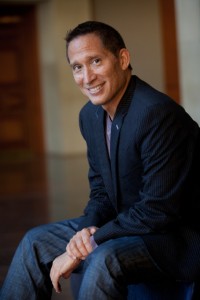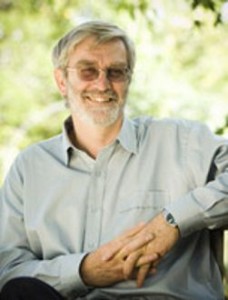Chairs Interest Group

Provost Donovan
Friday, August 16, 2013 9:00am-11:30am
Kelly Center, Cox A
Breakfast Included
Provost Donovan invites all department chairs to meet for breakfast and to discuss developing a chair’s website.
Topics: budget and triangulation of teaching evaluation, including observations, small group instructional diagnosis, peer review, video, and eSPOT.
Teaching Naked: How Moving Technology out of your College Classroom will Improve Student Learning by Dr. Jose Bowen

Dr. Jose Bowen
Thursday, September 19, 2013, 11:30am-1:30pm
Kelly Center, Cox B
Lunch provided
Technology is changing higher education, but the greatest value of a physical university will remain its face-to-face (naked) interaction between faculty and students. The most important benefits to using technology occur outside of the classroom. New technology can increase student preparation and engagement between classes and create more time for the in-class dialogue that makes the campus experience worth the extra money it will always cost to deliver. Students already use online content, but need better ways to interact with material before every class by taking online quizzes, doing interactive online assignments, playing games, asking questions or working in online communities. By rethinking our assignments, use of technology, and course design, we can create more class time for the activities and interactions that most spark the critical thinking and change of mental models we seek
In this hands-on keynote presentation, Dr. Jose Bowen, author of Teaching Naked and popular TED Talks, will share thoughts and strategies for improving student learning by moving technology outside of the classroom.
Designing Learning Spaces
Tuesday, November 12, 2013 11:30am-1:30pm
Tucker Technology 139
Lunch Provided

Dr. Gordon Sanson
Presentation by Professor Gordon Sanson of Monash University (Australia) and Academic Liaison at Pearson eCollege (US).
Dr. Sanson will share lessons from Monash University’s journey in designing learning spaces for the 21st century classroom and integrating spaces with the development of a new technology for classroom engagement. This journey was guided by the recognition that Face-to-Face classroom time is precious and expensive and too often sub-optimal or even squandered because of poor learner preparation, barriers to engagement and the pressures of a social situation.
Gordon Sanson believes that education is undergoing transformational change, but is concerned that much of this change is technologically driven by what can be done, rather than by what needs to be done. Nonetheless, technology can give every learner a voice, contribute to better engagement, and foster individuals taking responsibility for their own learning. However, the biggest challenges may be the institutional and personal constraints on taking risks and adopting new practices. Effectively embracing the emerging opportunities requires cultural change in education.
About the Speaker
Professor Gordon Sanson, Monash University (Australia) and Academic Liaison at Pearson eCollege (US).
Gordon Sanson is a biologist and has been a research and teaching academic for over 40 years. He has had a long but often frustrated interest in how to educate for deep understanding and sustained learning. Over the last 20 years he has had a special interest in the development of innovative and flexible teaching and learning practices and spaces that integrate pedagogy, space and emerging technologies, particularly in large classes of around a thousand students in first year biology. As Head of the School of Biological Sciences at Monash University in Melbourne, Australia’s largest university, he led the redevelopment of more advanced laboratories that integrated collaborative technologies into the teaching space. This resulted in a Business and Higher Education Round Table Award for Outstanding Achievement in Collaboration in Research in Education and Training in 2006. He was awarded a national Carrick Citation for Outstanding Contributions to Student Learning in 2007. As the Founding Director of the eEducation Centre at Monash University he deliberately focused on the integration of pedagogy, space and technology and among other achievements the team he led received an eLearning Industry Association of Victoria Excellence Award for ‘myLearningSpace’ in 2010 and again in 2011 for the ‘Simple Pens’ application. He is a Founding Father of the John Monash Science School, a public secondary school on the university campus that is embedded in the Science Faculty and is a lighthouse for professional development in science education, and is his proudest achievement.
He believes that education is undergoing transformational change, but is concerned that much of the technological change being seen in the education sector is being driven by what can be done, rather than by what needs to be done. He believes that, in time, technology has the power to give each individual learner a voice that will contribute to enabling each of them to engage in and take responsibility for their own learning and reach their individual potential. However, he also acknowledges that the biggest challenge is the human condition and the willingness to take risks and adopt new practices in both teachers and learners and that effectively embracing the emerging opportunities requires cultural change in education.